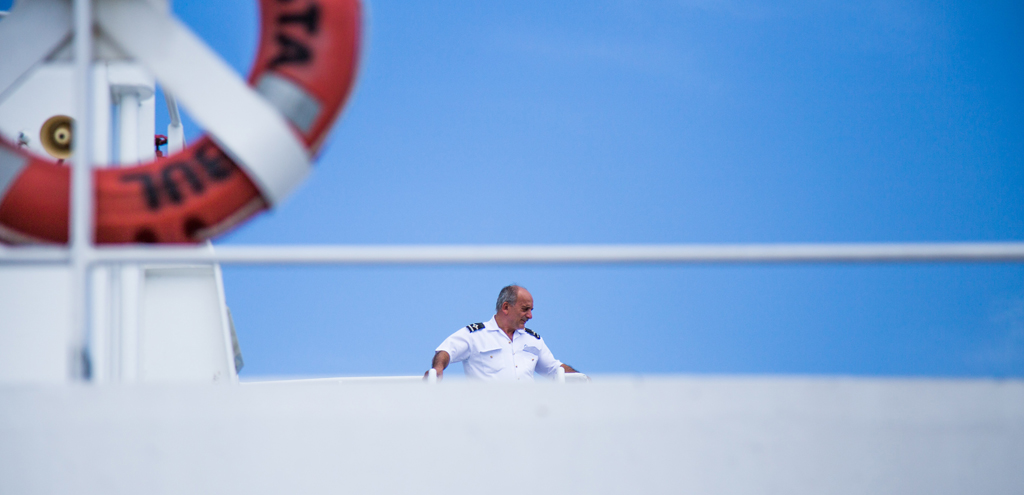Human Element

The human element is recognized as a key element of the safety of life on board ships and a contributing factor to most of the casualties in the shipping sector. Maritime safety and safety of navigation can be enhanced by strengthening the focus on the human element.
The wide-ranging scope and importance of the human element makes it a shared responsibility of IMO, as the regulatory body; Member States, as implementers; companies, as providers of the necessary resources, safety policies and safety culture; and seafarers, as the individuals who physically operate ships.
The safety and security of life at sea, protection of the marine environment and over 80% of the world’s trade depends on the professionalism and competence of seafarers.
The IMO’s International Convention on Standards of Training, Certification and Watchkeeping for Seafarers (STCW), 1978 was the first internationally-agreed Convention to address the issue of minimum standards of competence for seafarers. In 1995 the STCW Convention was completely revised and updated to clarify the standards of competence required and provide effective mechanisms for enforcement of its provisions.
A comprehensive review of the STCW Convention and the STCW Code commenced in January 2006, and culminated in a Conference of Parties to the STCW Convention which was held in Manila, Philippines from 21 to 25 June 2010, that adopted a significant number of amendments to the STCW Convention and STCW Code. These amendments, now referred to as the Manila amendments, which provide enhanced standards of training for seafarers, entered into force on 1 January 2012.
In 1997, IMO adopted a resolution setting out its vision, principles and goals for the human element. The human element is a complex multi-dimensional issue that affects maritime safety, security and marine environmental protection involving the entire spectrum of human activities performed by ships’ crews, shore-based management, regulatory bodies and others. All need to co-operate to address human element issues effectively.
Since the 1980s IMO has increasingly addressed the people involved in shipping in its work. In 1989, IMO adopted resolution A.647(16) on Guidelines on management for the safe operation of ships and for pollution prevention – the forerunner of what became the International Safety Management (ISM) Code, which was made mandatory through the International Convention for the Safety of Life at Sea, 1974 (SOLAS).
The ISM Code is intended to improve the safety of international shipping and to reduce pollution from ships by impacting on the way ships are managed and operated by the shipping companies. The ISM Code establishes an international standard for the safe management and operation of ships and for the implementation of a safety management system (SMS).
Effective implementation of the ISM Code should lead to a move away from a culture of “unthinking” compliance with external rules towards a culture of “thinking” self-regulation of safety – the development of a “safety culture”, with every individual – from the top to the bottom – feeling responsible for actions taken to improve safety and performance. Application of the ISM Code should support and encourage the development of a safety culture in shipping.
In 1995, IMO adopted the Guidelines on implementation of the International Safety Management (ISM) Code by Administrations by resolution A.788(19). Revised guidelines were adopted by resolution A.913(22) in 2001, and subsequently by resolution A.1022(26) in 2009, which were replaced by a further revision adopted by resolution A.1071(28) in 2013. These revised guidelines have been revoked by resolution A.1118(30) with effect from 6 December 2017.
The safety and security of life at sea for fishing vessel personnel are also a matter of concern of IMO, which recognises the need for a response to the safety crisis of the fishing industry and has a number of instruments addressing the issue. One of those instruments is the International Convention on Standards of Training, Certification and Watchkeeping for Fishing Vessel Personnel (STCW-F), 1995, which was adopted by IMO in 1995, and was intended to bring considerable benefits and advantages to the fishing industry and enhancing the standard of safety in the fishing vessel fleets.
The 1995 STCW-F Convention apply to crews of sea going fishing vessels, generally of 24 meters in length and above and/or powered by main propulsion machinery of 750 kW propulsion power or more. The Convention is the first attempt to make standards of safety for crews of fishing vessels mandatory internationally and entered into force on 29 September 2012.
The 1995 STCW-F Convention is currently being comprehensively reviewed by the Sub-Committee on Human Element, Training and Watchkeeping in order to align the standards of the Convention with the current state of the fishing industry, and to make available an effective instrument, which will contribute to addressing the significant challenges of this sector.
Ongoing work and future perspective of the human element
The human element is currently included within the overarching principles of the Strategic Plan for the Organization for the six-year period 2018 to 2023 (resolution A.1110(30)), which provides that the human element will be taken into account in the review, development and implementation of new and existing requirements, including skills, education and training, and human capabilities, limitations and needs; and that IMO, in all aspects of its work, will take into account the needs and well-being of seafarers.
In addition to the already heavy human element-related workload emanating essentially from the HTW Sub-Committee and its terms of reference and associated regulatory instruments, such as the assessment of information communicated by STCW Parties; implementation of technical cooperation activities (in the context of environmental protection, facilitation, safety and security) and the coordination of the model courses programme; the following is a non-exhaustive description of relevant human element-related actions and initiatives currently being undertaken or planned to be undertaken by the Organization:
- comprehensive review of the STCW-F Convention;
- analysis of implementation issues of the 1978 STCW Convention, as amended, with a view to possibly initiating a comprehensive review of the Convention in the near future;
- addressing the human element-related work emanating from the regulatory scoping exercise on Maritime Autonomous Surface Ships (MASS);
- development of provisions for fair treatment of seafarers detained on suspicion of committing a crime; and guidelines for port State authorities to deal with abandonment cases;
- development of training provisions for seafarers related to the BWM Convention;
- development of harmonized electronic messages to encourage the automatic exchange of information between ship and shore and the integration of the automatic exchange of information in maritime single window systems;
- actions emanating from the action plan to address marine plastic litter from ships; and
- several interagency partnerships initiatives with various UN Specialized Agencies, mainly ILO.



